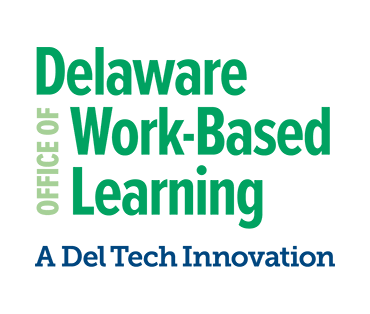Excite with Career Immersion
Immersion experiences jumpstart students’ careers with structured workplace programs that provide hands-on exposure to specific industries. Delaware employers participate by offering project-based experiences with multiple, on-site mentor touchpoints over several weeks.
Detailed examples below.
Immersion Experiences
Immersion experiences are as diverse as the employers and students who participate in them! Designed to meet both student and employer need, immersions can be paid or unpaid and students may earn school credit through the Delaware Pathways curriculum. Although the length and depth of immersion experiences vary from a few weeks to several months, they are all designed to provide ample opportunity for the student and employer to advance the student’s skill sets while participating in meaningful work assignments, duties, and experiences. Schools accommodate students’ work schedules during the school year based on employers’ requirements and needs.
School-Based Enterprises
School-Based Enterprises (SBE) are entrepreneurial operations managed and operated by students. Employer advisors provide industry-specific expertise to guide student success and often contribute funding and material support. Teachers supplement student efforts with integrated academic content across a range of professional fields like marketing, finance, management, and more.
SBEs’ business services may be wide-ranging, such as selling agricultural products/produce, providing basic financial services as a credit union branch, operating a school spirit or convenience store, selling handcrafted or artisan goods, providing computer technical support, and much more. Students engage with their consumers online, through a mobile kiosk, or from a permanent physical location.
Co-Op Experiences
A cooperative education program (co-op) provides students the opportunity to gain sustained work experience in their career fields. Employers host students in a 3-12 month full-time position, including relevant training. Co-ops meet full-time employment standards and are typically completed by advanced-level high school students or postsecondary students capable of completing large, substantial projects for employers. Credits toward Delaware Pathways requirements may be earned and students’ school schedules are adjusted to accommodate participation.
Pre-apprenticeships
Pre-Apprenticeships place students into skilled trades career paths. Employers follow industry standards for pre-apprenticeship placements, including using industry-recognized curriculum and training standards and strong recruitment strategies that overcome barriers to participation; providing hands-on training and access to appropriate support services; and ultimately facilitating formalized connections to one or more apprenticeship programs for students completing requirements.
Participants are advanced high school or postsecondary students seeking to accelerate their progress along their chosen career pathway. Depth and duration of placement varies by industry, but includes meaningful work assignments, duties, and experiences that regularly exceed basic, entry-level employment.
Apprenticeships
Apprenticeships place students in formalized work experiences that culminate in a nationally-certified occupational credential. Students interview and are hired into employer-run apprenticeships that are registered programs with the US Department of Labor, company-specific programs administrated by the employer, or industry-specific programs administered by a postsecondary institution in partnership with one or more companies.
Apprenticeship programs have distinct requirements, including:
- Graduated pay
- Ongoing relevant technical instruction and training
- A national occupational credential certifying proficiency at the completion of the apprenticeship
Apprenticeships vary in length from one to four years and provide meaningful opportunities for students to advance their skill set and engage in duties and experiences that regularly exceed basic, entry-level employment.
